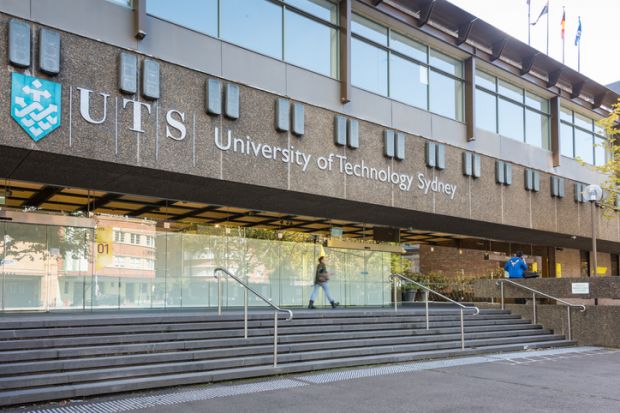International students may re-enter Australia in large numbers before the next academic year starts, according to Australia’s newest vice-chancellor. And University of Technology Sydney (UTS) boss Andrew Parfitt says a clear mechanism for students’ return is desirable, notwithstanding mixed messages around whether they will need to quarantine.
“All the signals are looking positive,” said Professor Parfitt, who has been appointed UTS leader after serving as provost since early 2017. “Universities are global institutions [with] students from around the world. That’s a positive thing for Australia. I still see international students being a critical part of the sector for some time.”
A charter flight of overseas students, the first to arrive in significant numbers in over 20 months, is due in Sydney in early December. Under current arrangements they must isolate for a fortnight in inner Sydney Redfern, barely a stone’s throw from the UTS campus, even though New South Wales no longer requires fully vaccinated international travellers to quarantine.
Professor Parfitt said that the flight was a “significant step” in demonstrating that the state was open to students. “It may well be that by the time we get to that point, the need for quarantine is diminished. Things change on a very regular basis. Keeping as many options open, to get as many students back as possible as quickly as possible, is the ideal circumstance for them.”
Update: see our 12 November article on New South Wales’ lifting of quarantine requirements for international students
It is also ideal for institutions like UTS, which obtained more than 40 per cent of its revenue from overseas students – more than half of them Chinese – before the pandemic. That income stream fell by 14 per cent last year and could fall further this year. But Professor Parfitt said that the federal government’s policy focus on commercialisation of research would help compensate.
“In its broader dimension of…translation of research in different forms and the partnerships needed to do that, that’s all in UTS’ DNA,” he said. “It’s the right time for us to shine.”
He said that the university had included measures to reduce its reliance on international students at the outset of deliberations over its UTS 2027 Strategy. But diversifying away from China, whose students proved extremely keen on Australia before the pandemic and steadfast while stranded offshore, was no simple matter.
“There is no easy solution to the problem of diversification,” Professor Parfitt said. “We’ll probably end up thinking beyond just diversification of country to diversification of modes of education, undergraduate and postgraduate, mixed opportunities, offshore and online education – all of that is in the mix now.”
He said Covid had interfered with the roll-out of the strategy, which was focused on how to cultivate graduates and research to help meet the future demands of business and industry. But Covid also demonstrated the need.
“You get your first three years of a strategy interrupted for two years by something like a global pandemic, it does give pause for thought,” he said. “[But] we essentially doubled down on many things.
“We were saying at the beginning of the pandemic, if only we’d been three years further on in the strategy. We’ve had to spend a lot of time working with our communities – supporting [them] through lockdown [and] thinking about jobs and people’s families, livelihoods and well-being. In a sense, we’ve spent a lot of time building foundations. Now’s the time for us to move forward.”
Register to continue
Why register?
- Registration is free and only takes a moment
- Once registered, you can read 3 articles a month
- Sign up for our newsletter
Subscribe
Or subscribe for unlimited access to:
- Unlimited access to news, views, insights & reviews
- Digital editions
- Digital access to THE’s university and college rankings analysis
Already registered or a current subscriber? Login








